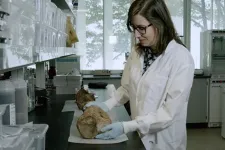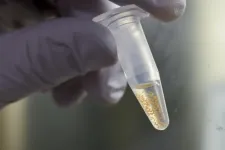(Press-News.org) Children and adolescents across the world consumed on average 23% more sugar sweetened beverages (SSBs) in 2018 than they did in 1990, show the results of a study published in The BMJ today.
Over the same period, a corresponding rise was seen in the prevalence of obesity among young people.
Unhealthy diets, especially intake of sugar sweetened beverages, play a crucial role in obesity. Although tracking the consumption of these drinks by children and adolescents is essential to understanding their impact on disease and the effectiveness of policies to control their consumption, recent national estimates of young people’s intake are unavailable for most countries.
To address this, researchers used data collected for the Global Dietary Database, which incorporated over 1,200 national and subnational dietary surveys representing 185 countries, and from which 450 surveys form 118 countries included data on SSB intakes.
Data were analysed for children and adolescents aged 3-19 years in 185 countries between 1990 and 2018 and grouped by age, sex, parental education, and rural or urban residence. Mathematical modelling was used to estimate the average consumption of SSBs for each group.
SSBs were defined as any beverage with added sugars and at least 209 kJ (50 kcal) per 237 g serving. These included commercial or homemade beverages, soft drinks, energy drinks, fruit drinks, punch and lemonade, but excluded 100% fruit and vegetable juices, non-caloric artificially sweetened drinks, and sweetened milk.
The results show that intakes of SSBs among children and adolescents increased by an average of 23% (0.68 servings/week) from 1990 to 2018, with the largest increases in sub-Saharan Africa (2.17 servings/week).
In 2018, the average global intake was 3.6 standard servings per week, ranging from 1.3 in south Asia to 9.1 in Latin America and the Caribbean. Yet 56 (30%) of the 185 countries included in the analysis - home to 238 million children and adolescents or 10.4% of the global population of young people - had an average SSB intake of 7 or more servings/week.
Globally, SSB intakes were higher in older versus younger children and adolescents, those resident in urban versus rural areas, and those of parents with higher versus lower education, with variations by world region.
The increase in intake of SSBs among children and adolescents between 1990 and 2018 was nearly twice the increase seen among adults over the same period, note the authors, who say measures specifically targeting marketing of SSBs to children and adolescents are critical.
They acknowledge some limitations that could have affected the accuracy of estimates, such as the limited availability of dietary survey data (particularly for lower income nations in south Asia and sub-Saharan Africa) and time periods, and the potential for underreporting or overreporting by relying on self-reported survey data.
But they say overall their findings “should be taken as the best currently available, but nonetheless imperfect, estimates of SSB intake worldwide.”
“Policies and approaches at both a national level and a more targeted level are needed to reduce intakes of SSBs among young people worldwide, highlighting the larger intakes across all education levels in urban and rural areas in Latin America and the Caribbean, and the growing problem of SSBs for public health in sub- Saharan Africa,” they write.
“Our findings are intended to inform current and future policies to curb SSB intakes, adding to the UN’s 2030 Agenda for Sustainable Development,” they add.
[Ends]
END
Sugary drink intake by children and adolescents increased by almost a quarter between 1990 and 2018
Increase parallels rises in obesity among young people. Action needed to curb consumption, particularly in Latin America and the Caribbean, and sub-Saharan Africa, say researchers
2024-08-08
ELSE PRESS RELEASES FROM THIS DATE:
New evidence casts doubt on a much-hyped blood test for early cancer detection
2024-08-08
New evidence published by The BMJ today casts doubt on a much-hyped blood test for the NHS that promises to detect more than 50 types of cancer.
The test, called Galleri, has been hailed as a “ground-breaking and potentially life-saving advance” by its maker, the California biotech company Grail, and the NHS is currently running a £150m Grail-funded trial of the test involving more than 100,000 people in England, report Dr Margaret McCartney and investigative journalist Deborah Cohen.
NHS England claims the test can identify many cancers that “are difficult to ...
Radiotherapy benefits last a decade, breast cancer study reveals
2024-08-08
Providing radiotherapy after surgery could prevent breast cancer from returning in the same place for up to 10 years, a long-term study suggests.
This protective effect is limited after a decade, when the risk of cancer recurrence is similar to that in those who have not received radiotherapy.
The findings provide a more complete picture of the long-term benefits of radiotherapy following breast cancer surgery, experts say.
Surgery followed by radiotherapy remains the standard care for women with ...
Prescription painkiller misuse and addiction are widespread in chronic pain patients
2024-08-08
A new scientific review of 148 studies enrolling over 4.3 million adult chronic pain patients treated with prescription opioid painkillers has found that nearly one in ten patients experiences opioid dependence or opioid use disorder and nearly one in three shows symptoms of dependence and opioid use disorder. This review provides a more accurate -- and more concerning -- rate of opioid misuse than has previously been calculated. It was conducted by researchers at the University of Bristol, funded by the National Institute for ...
When mammoths roamed Vancouver Island: SFU and Royal BC Museum delve into beasts’ history in our region
2024-08-07
Mammoths, the massive pre-historic ice age cousins of the modern-day elephant, have always been understood to have inhabited parts of British Columbia, but the question of when has always been a bit woolly.
Now, a new study from Simon Fraser University has given scientists the clearest picture yet when the giant mammals roamed Vancouver Island.
As part of SFU researcher Laura Termes’ PhD and published earlier this month in the Canadian Journal of Earth Sciences, the study examined 32 suspected mammoth samples collected on Vancouver Island. Of those samples, just 16 ...
Ochsner Health welcomes Mary Claire Curet, MD, as first Ochsner Physician Scholar
2024-08-07
Lafayette, La. – Ochsner Health is excited to announce that Mary Claire Curet, MD, is joining the team at St. Martinville Family Medicine, an Ochsner primary care practice. Dr. Curet, a native of New Iberia, is the first Ochsner Physician Scholar and brings a wealth of knowledge and a deep commitment to her community.
“We are thrilled to welcome Dr. Curet to the Ochsner family,” said Leonardo Seoane, MD, Founding Dean of Xavier Ochsner College of Medicine and Executive Vice President and Chief Academic Officer for Ochsner Health. “Her dedication and passion for primary care, particularly in underserved ...
Discovering how plants make life-and-death decisions
2024-08-07
Researchers at Michigan State University have discovered two proteins that work together to determine the fate of cells in plants facing certain stresses.
Ironically, a key discovery in this finding, published recently in Nature Communications, was made right as the project's leader was getting ready to destress.
Postdoctoral researcher Noelia Pastor-Cantizano was riding a bus to the airport to fly out for vacation, when she decided to share a promising result she had helped gather a day earlier.
“I didn’t want to wait ten days until I came back to send it. It took almost two years to get there,” said Pastor-Cantizano, who then worked ...
National Academies progress report: Health disparities
2024-08-07
Irvine, Calif., Aug. 7, 2024 — From costing society an estimated $11 trillion to hindering new discoveries in medicine and preventing access to effective interventions, underrepresentation of women, older adults and minorities in clinical research has several significant consequences, according to recent analyses commissioned by the National Academies of Sciences, Engineering and Medicine.
Jonathan Watanabe, UC Irvine professor of clinical pharmacy practice and director of the campus’s Center for Data-Driven Drugs Research and Policy, ...
Lemurs use long-term memory, smell, and social cues to find food
2024-08-07
How do foraging animals find their food? A new study by New York University researchers shows that lemurs use smell, social cues, and long-term memory to locate hidden fruit—a combination of factors that may have deep evolutionary roots.
“Our study provides evidence that lemurs can integrate sensory information with ecological and social knowledge, which demonstrates their ability to consider multiple aspects of a problem,” said anthropologist Elena Cunningham, a clinical professor of molecular pathobiology at NYU College of Dentistry and the lead author of the study, published in the International Journal of Primatology.
Animals rely on ...
New research challenges conventional wisdom on wet surface adhesion
2024-08-07
Scientists at the University of Akron and the University of Pittsburgh have overturned long-held assumptions in new research that finds water can be a help for adhesion.
Dr. Ali Dhinojwala, distinguished W. Gerald Austen Endowed Chair and H.A. Morton Professor at The University of Akron’s School of Polymer Science and Polymer Engineering, lead a team whose significant breakthrough — that water can unexpectedly enhance adhesion under controlled conditions — was published Aug. 7 in Science Advances.
The implications of this research are profound, particularly in biomedical applications ...
Newly published report outlines findings from first archaeology project in space
2024-08-07
The first-ever archeological survey in space has provided new insights into how astronauts use and adapt their living space on the International Space Station, which could influence the design of new space stations after the ISS is decommissioned.
Findings from the research team behind the International Space Station Archaeological Project (ISSAP) were published today in the journal PLOS ONE. Archaeologist Justin Walsh of Chapman University is available to discuss the discoveries of the team’s first on-orbit project, the Sampling Quadrangle Assemblages Research Experiment (SQuARE).
While Earth-bound archaeologists dig one-meter squares to understand ...
LAST 30 PRESS RELEASES:
The wild can be ‘death trap’ for rescued animals
New research: Nighttime road traffic noise stresses the heart and blood vessels
Meningococcal B vaccination does not reduce gonorrhoea, trial results show
AAO-HNSF awarded grant to advance age-friendly care in otolaryngology through national initiative
Eight years running: Newsweek names Mayo Clinic ‘World’s Best Hospital’
Coffee waste turned into clean air solution: researchers develop sustainable catalyst to remove toxic hydrogen sulfide
Scientists uncover how engineered biochar and microbes work together to boost plant-based cleanup of cadmium-polluted soils
Engineered biochar could unlock more effective and scalable solutions for soil and water pollution
Differing immune responses in infants may explain increased severity of RSV over SARS-CoV-2
The invisible hand of climate change: How extreme heat dictates who is born
Surprising culprit leads to chronic rejection of transplanted lungs, hearts
Study explains how ketogenic diets prevent seizures
New approach to qualifying nuclear reactor components rolling out this year
U.S. medical care is improving, but cost and health differ depending on disease
AI challenges lithography and provides solutions
Can AI make society less selfish?
UC Irvine researchers expose critical security vulnerability in autonomous drones
Changes in smoking status and their associations with risk of Parkinson’s, death
In football players with repeated head impacts, inflammation related to brain changes
Being an early bird, getting more physical activity linked to lower risk of ALS
The Lancet: Single daily pill shows promise as replacement for complex, multi-tablet HIV treatment regimens
Single daily pill shows promise as replacement for complex, multi-tablet HIV treatment regimens
Black Americans face increasingly higher risk of gun homicide death than White Americans
Flagging claims about cancer treatment on social media as potentially false might help reduce spreading of misinformation, per online experiment with 1,051 US adults
Yawns in healthy fetuses might indicate mild distress
Conservation agriculture, including no-dig, crop-rotation and mulching methods, reduces water runoff and soil loss and boosts crop yield by as much as 122%, in Ethiopian trial
Tropical flowers are blooming weeks later than they used to through climate change
Risk of whale entanglement in fishing gear tied to size of cool-water habitat
Climate change could fragment habitat for monarch butterflies, disrupting mass migration
Neurosurgeons are really good at removing brain tumors, and they’re about to get even better
[Press-News.org] Sugary drink intake by children and adolescents increased by almost a quarter between 1990 and 2018Increase parallels rises in obesity among young people. Action needed to curb consumption, particularly in Latin America and the Caribbean, and sub-Saharan Africa, say researchers



